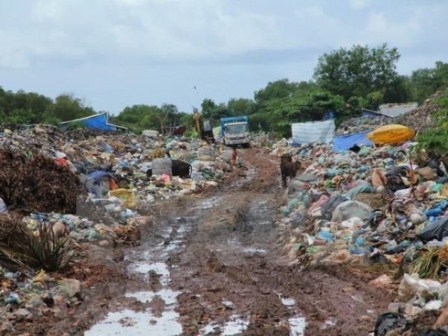French non-governmental organisation GRET Vietnam and partners held an international seminar in Hanoi on May 15 to discuss solid waste management in suburban, small and medium-sized urban areas in Southeast Asia, within the framework of a project on waste management in rural areas.

The event aimed to promote good practices in effective and sustainable waste management services in the above areas.
Speaking at the event, head of the French Development Agency’s urban and social affairs division Quentin Lebegue said the World Bank’s recent What a Waste 2.0 report forecast that household waste per capita in the Southeast Asia and the Pacific will increase by 30 percent in the next 15 years.
Local authorities and those concerned have met difficulties in effectively dealing with garbage, particularly in Vinh Phuc province, he said, adding that the first stage of the PRO3 project has concluded successfully in the northern locality.
The French Development Agency (AFD) pledges to offer 2.5 billion VND in aid to Vietnam to achieve the goal of waste reduction roadmap and developing waste collection and treatment system, he said.
Delegates from domestic and foreign research institutes shared experience in waste management models, including non-concentrated solid waste management in semi-urban areas in Vietnam, community-based organic waste treatment and policy lobbying for the spread of the model in Da Nang, waste management in markets in Myanmar’s Magway, waste recycling and collection in Cambodia’s Battambang, and solid waste management in Thailand’s Phisanulok.
Chief Representative of GRET Vietnam Nguyen Huu Ninh said recycled wastes account for 5-10 percent of landfills. In January 2018, China banned the import of plastic waste. In June 2018, Vietnam suspended import licensing for plastics recycling.
Talking about non-concentrated solid waste management in Vinh Phuc, GRET Vietnam’s expert Josenlin Ravar said the project has contributed to improving the capacity and operation of the system of environment cooperatives. As many as 15 communes in the province successfully piloted the project, with results being submitted to agencies concerned for reference.
Source: vov